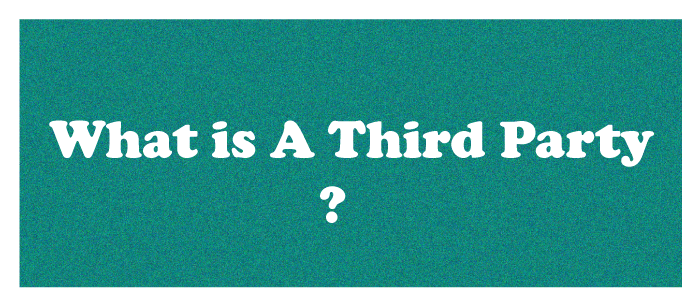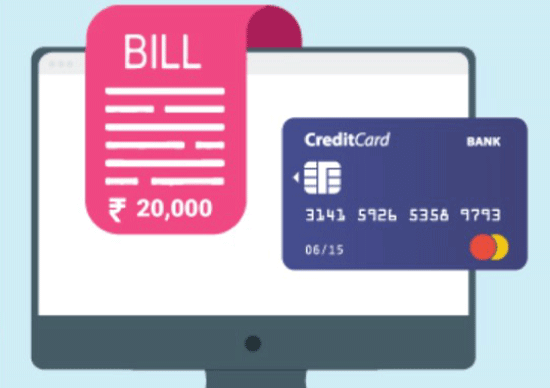Third-Party TransactionWhat is a Third Party?A third party is a person or entity who helps to facilitate a transaction but who is not one of the main players. A third party will perform duties on account of one or more parties involved in a transaction. Mediators, mortgage brokers, and job agencies are a few examples of third parties. Although the third-party payment processor isn't one of the main parties like the buyer and seller, the transaction is nevertheless completed without their help. 
What is a Third Party Transaction?A third-party transaction is appropriately used to represent any transaction between a seller and a buyer in which there is some intermediary or a third-party person or agency involved. This includes circumstances where the intermediaries act as a gateway for the transfer of funds from a purchaser to a seller, promote the services or items that a seller is offering, or both. Almost always, the third party engaged in the transaction will be compensated in some way; it may be a flat rate, a fee, or a percentage of the overall transaction value. Simply put, a business contract that includes a party to perform a specific transaction besides the key players is referred to as a third-party transaction. Normally, a buyer, a seller, and a third party are involved in the transaction. Depending on the nature of the business transaction, the third party's involvement may change accordingly. Companies typically decide to employ other parties to reduce risk and burdens. For instance, it can be difficult for small organizations to break into the market because the competition from large companies is still fierce. The decision to invest in administrative infrastructure is one of the factors that contribute to large-sized companies growing more quickly. In order to maintain their competitiveness in the market and increase their market share, many small businesses outsource their tasks. The involvement can occasionally be one-time, like when a third-party payment system is involved for an item someone bought from a website. Sometimes the involvement lasts longer, such as when a certain firm regularly uses a third-party provider. For example, insurance brokers are third-party sales representatives in the insurance sector that promote insurance products to potential customers. The insurance firm uses the broker to bring in new business, while the client uses the broker to get a suitable insurance contract with affordable rates and terms. The insurer will pay the broker a commission if they successfully introduce a new customer to an insurance provider. Understanding Third-Party TransactionA third party or intermediary might be chosen by a seller and a buyer to handle the transaction between them when they enter a business agreement. The third party's role may change. This may include creating the specifics of the deal in question, providing a specialized service to a business that is slightly out of its normal environment, acting as an intermediary between two parties, or as a means of collecting payment from the buyer and transferring it to the seller. Third-party transactions occur in many circumstances and are crucial for various accounting policies. It is significant to note that neither of the other two transaction participants is connected to the third party directly during the transactions. For example, if Company A sells inventory to Company B, an intermediary involved in arranging to sell the finished goods between them constitutes a third-party transaction. As a result of the transaction, the third party may receive the specified fees from one or both parties/ companies. Examples of Third Party TransactionA wide range of sectors regularly gets engaged in various transactions involving third parties. In the same way, a mortgage broker is viewed as a third-party transaction facilitator since they work to match the demands of prospective homebuyers with the lending programs that lenders are willing to supply. The goal is to establish a relationship between the customer and seller that is advantageous to everyone involved in the transaction. In the best-case scenario, the buyer can work with the broker to find a mortgage with favourable rates and terms, and the seller can use the broker to find a new customer. The broker gains something in exchange for the deal's successful execution, typically in a commission. 
As technology advances, transactions in the digital world are carried out in advanced ways, with more people and companies engaging in third-party transactions using digital payment platforms. A purchaser can make a transaction for the acquisition of goods or services purchased from another party through digital platforms. The buyer eventually pays the third-party provider, who then debits the purchaser's account after confirming that the funds are accessible. The funds are then sent to the seller's account, which is frequently on the same online platform. The seller's account may be credited in a matter of minutes or days; however, once the deposit has been made, the money can be withdrawn from a bank account and can be utilized for other purposes.
Next TopicWhat Is Price Discrimination
|
 For Videos Join Our Youtube Channel: Join Now
For Videos Join Our Youtube Channel: Join Now
Feedback
- Send your Feedback to [email protected]
Help Others, Please Share









